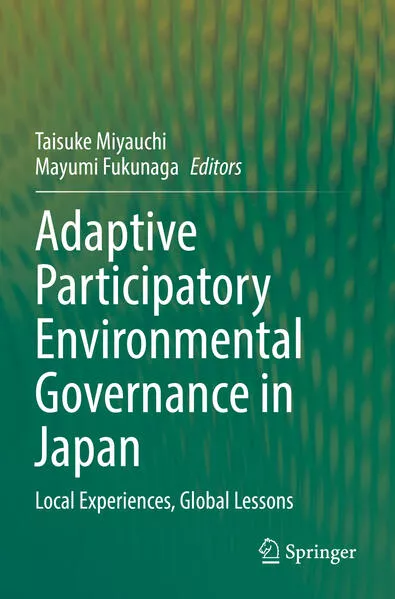
- Publikationen ca: 3
- Fragen & Antworten
Taisuke Miyauchi
Taisuke Miyauchi is a Professor of the Faculty of Humanities and Human Sciences at Hokkaido University in Sapporo, Japan. As an environmental sociologist, he has researched the social-ecological systems of several areas in the Solomon Islands and Japan. He specializes in natural resources management, community development, and environmental governance. He has led some research projects on environmental governance, including the MEXT KAKENHI (Grants-in-Aid for Scientific Research Program)project titled "Sociological study on adaptive governance in uncertainty and plurality.” His authorship includes Kaihatsu to seikatsu senryaku no minzokushi (An ethnography of development and livelihood strategies) and Hitobito no shizensaisei (Nature regeneration and local people). He is also interested in the social history of the fishing industry, and coauthored Katsuobushi to Nihonjin (Dried bonito and Japanese people). Miyauchi has edited and published several books as well, including Hansaibai no kankyō shakaigaku (Environmental sociology of semi-nature), Naze kankyō hozen wa umaku ikanai noka? (Why does environmental conservation fail?), and Dōsureba kankyō hozen wa umaku iku noka? (How can environmental conservation work?). Additionally, having been focused on the reconstruction and recovery following the Great East Japan Earthquake, he edited and published Saigai to chiiki saisei (Disaster and community regeneration).
Mayumi Fukunaga is an Associate Professor of Environmental Sociology and Ethics at the Department of Socio-Cultural Environmental Studies, Graduate School of Frontier Sciences, the University of Tokyo, Japan. Her works center on interdisciplinary issues at the interface of ethics, environmental governance, and ontological histories of non-human species, particularly in connection with aquaculture politics in the aftermath of natural and anthropogenic disasters, environmental justice in co-designing social-ecological systems, and foodscapes and foodways in the Anthropocene. Her most recent book is Sake wo tsukuru hitobito: Suisanzōshoku to shigensaisei (Futuring Salmon: Dreams of Marine Ranching in Ruins), and she is the coeditor of Mirai no kankyō rinrigaku (Environmental Ethics for Futures). Her recent non-humans of focus are seaweeds including seaweeds as communicator species of social-ecological systems’ resilience and rainbow trout as a cosmopolitan and tech-adaptable species.
Adaptive Participatory Environmental Governance in Japan
This book contributes to the theoretical and practitioner literature in environmental governance and sustainability of natural resources by linking case studies of the roles of narratives to the three key practices in local environmental governance: socio-political legitimacy in participation; collaboratively creating stakeholder-ness, and cultivating social and ecological capabilities.
Adaptive Participatory Environmental Governance in Japan
This book contributes to the theoretical and practitioner literature in environmental governance and sustainability of natural resources by linking case studies of the roles of narratives to the three key practices in local environmental governance: socio-political legitimacy in participation; collaboratively creating stakeholder-ness, and cultivating social and ecological capabilities.
Adaptive Participatory Environmental Governance in Japan
This book contributes to the theoretical and practitioner literature in environmental governance and sustainability of natural resources by linking case studies of the roles of narratives to the three key practices in local environmental governance: socio-political legitimacy in participation; collaboratively creating stakeholder-ness, and cultivating social and ecological capabilities.


